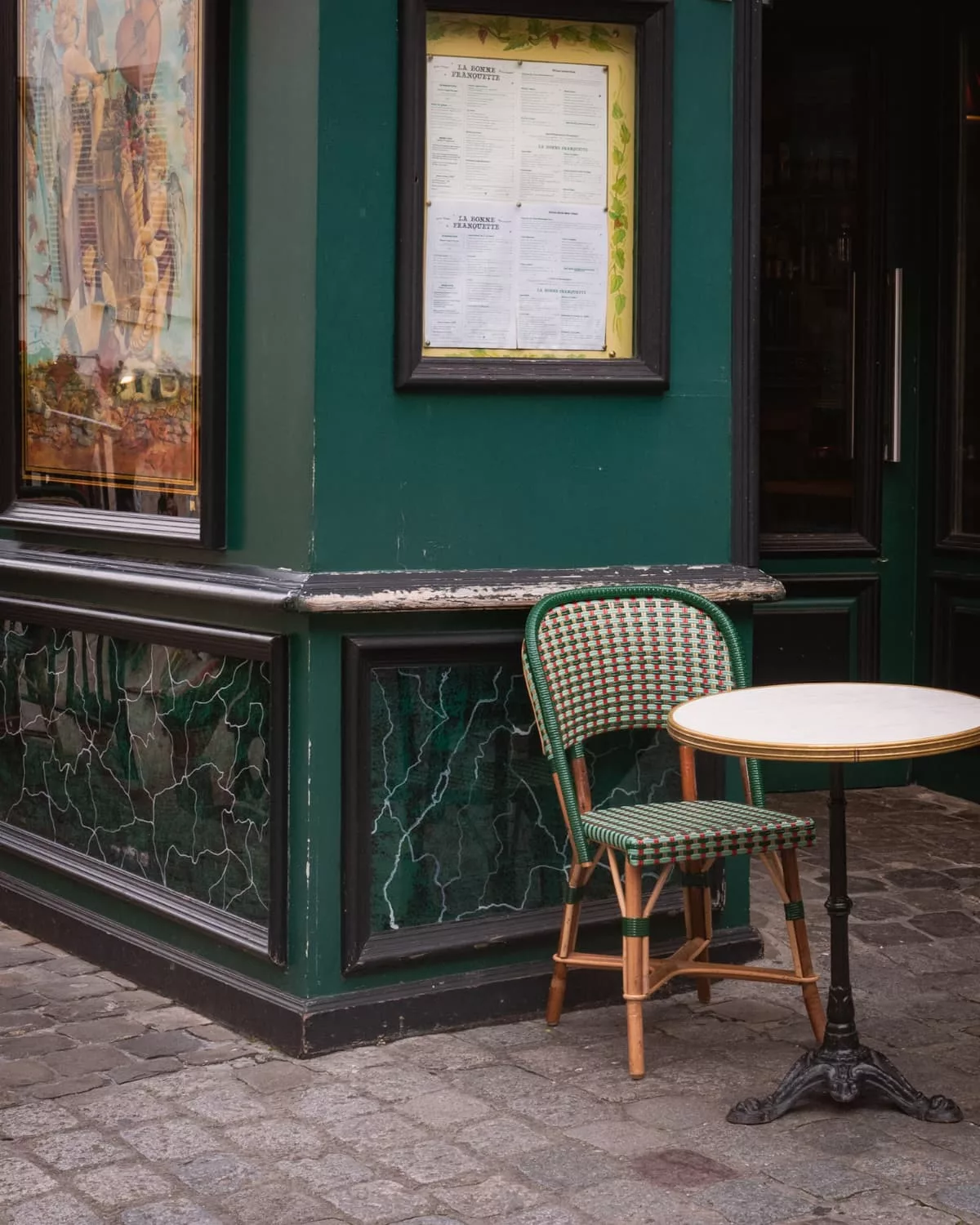‘Tis a truth universally acknowledged, that the French are very particular about their food, and how they eat it. While they have some of the best dishes and products in the world, they also have a whole list of food dos-and-don’t. If you asked a French person though, odds are they might not even be conscious of it. A lot of food rituals the French, comes from years of being socialised within a society and education system that has cultural assimilation at the heart of it.
Since I moved to Paris three years ago, I have had many a conversations with French friends and family about food, eating and the rituality built around them. Some of these conversations took them by surprise revealing that things they take for granted, are completely crazy or foreign ideas to me. On the other hand, many of these talks have revealed my own hang-ups and rituals around food that arises from my Indian upbringing.
In this article, I will share some aspects of French food culture that took me by surprise when I first arrived in Paris. Of course, the points I make below are generalisations, but I think they are a fairly good representation of what I mean when I talk about rituals around food for the French.
Remember that they are from my personal point of view. Some of these might be fairly routine things where you are from. Also, aren’t we all super sentimental and possessive of our food cultures?! So, let’s keep an open mind above everything else, and talk about it all with respect and curiosity, rather than judgment.
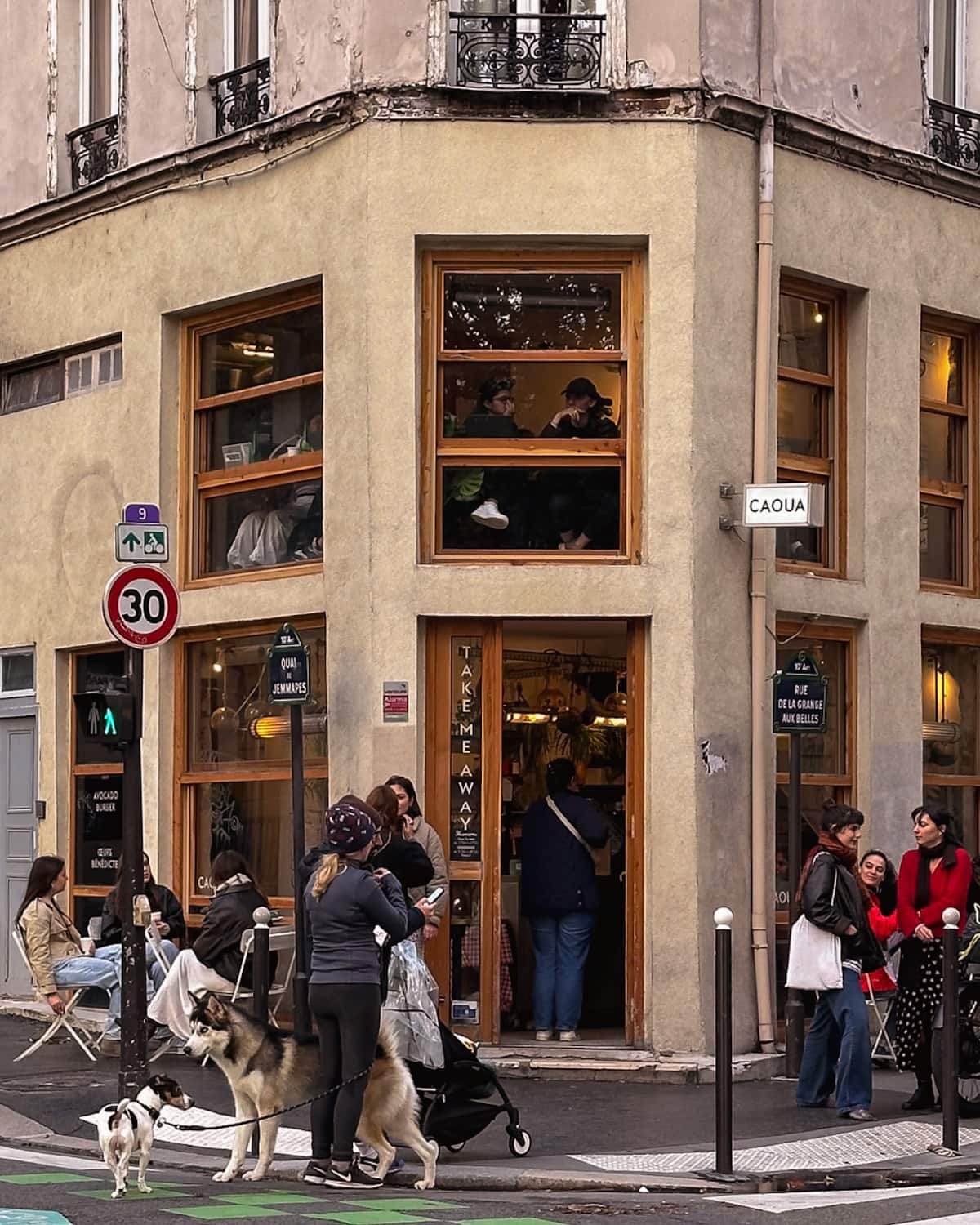
Bread is life
The French love bread. The stereotype of French people moving around the city, carrying grocery bag with baguettes peeking from it, is actually very much true. Every meal starts with bread. Again, most main dishes ends with people using bread to wipe off the last bit of sauce from their plates.
In my extended family, I have seen my in-laws eating bread with everything. When I say ‘everything’, I mean I have seen my husband and his family happily sop up Indian masala chicken gravy with their baguettes and be so content. It was trés bon all around.
Below, I talk about how there’s no snacking in France. But, there’s an exception to the no-snacking rule when you are going for a boulangerie run. Confused?
Well, one of the first things I did in Paris was to go to a neighbourhood boulangerie to pick up bread, as one does when in France. It was then that my husband cheekily performed a beloved ritual of the French: tearing off the end of a still-warm baguette and chomping on it on merrily while walking home. This according to him, was completely acceptable snacking. This pointy end of a baguette even has a name, le quignon.
I guess, if that’s not the best representation of the centrality of bread to life in France, what is!
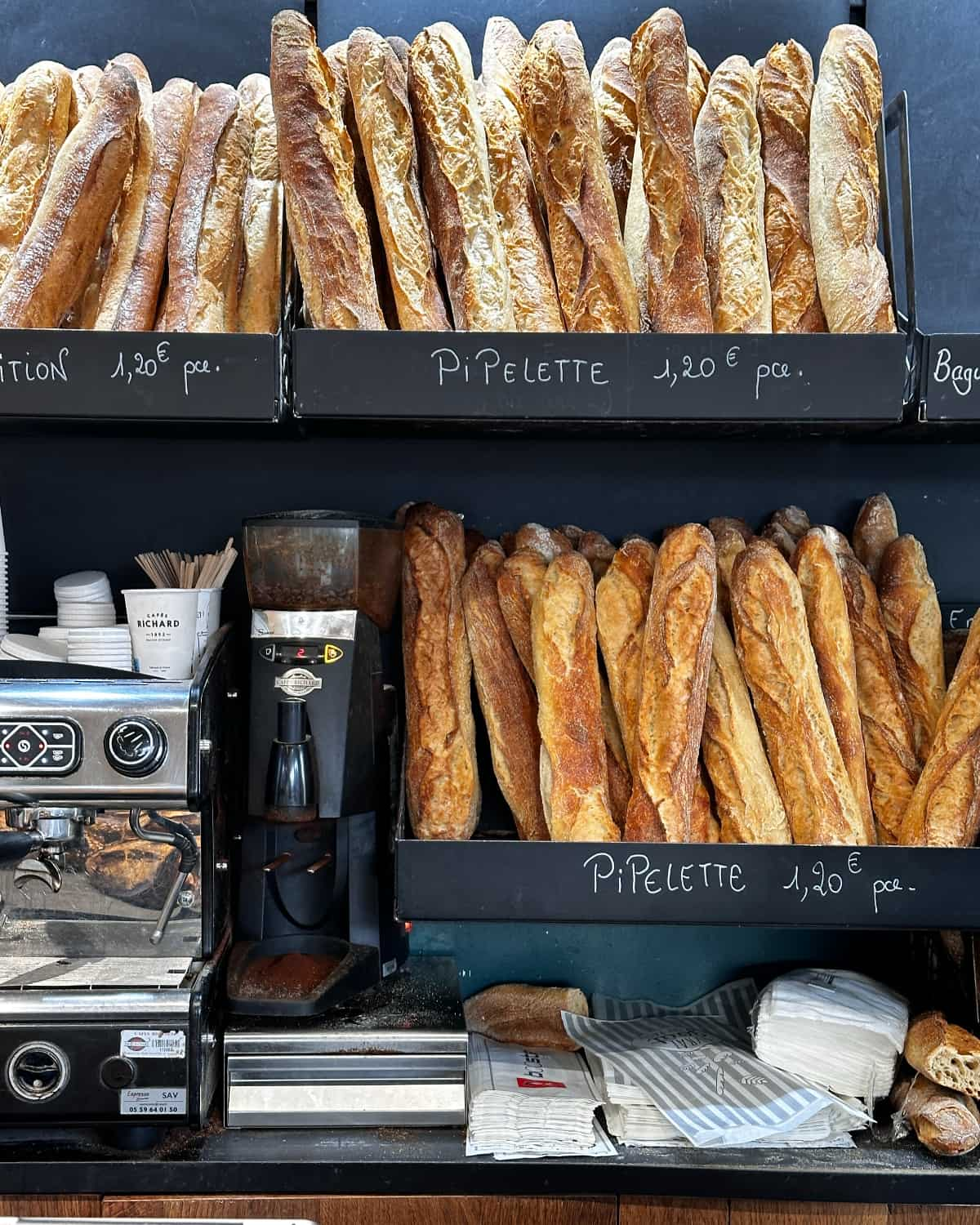
The French do not eat viennoiseries for breakfast!
Viennoiseries are a group of baked goods which are defined by a specific technique of baking. Suffice to say, they are a baked-good category in-between breads and pastries and include buttery goodness such as croissants, brioche, pain au chocolat, etc.
I was under the impression that croissants in particular, and viennoiseries in general, are breakfast foods. So it is perfectly acceptable to eat them for breakfast on a daily basis. For me, it was after-all, an amazingly elevated version of a toast for breakfast. If you are French, you are probably shaking either with consternation or laughter, at this misconception. Because of course, a croissants is an amazingly elevated version of bread, mostly in terms of calories and fats.
No French person would ever eat croissants or viennoiseries every day. But I know of more than 1 foreigner in France who would actually do this and then bemoan the dreaded Parisian 10 pounds ie the weight almost every fresh French implant puts on because the food is so good. Truth be told, it is also because it can be quite isolating to move to a new country/city and some of us do seek comfort in good food.
As for what the French typically eat for breakfast, I will be making a separate post about it soon.
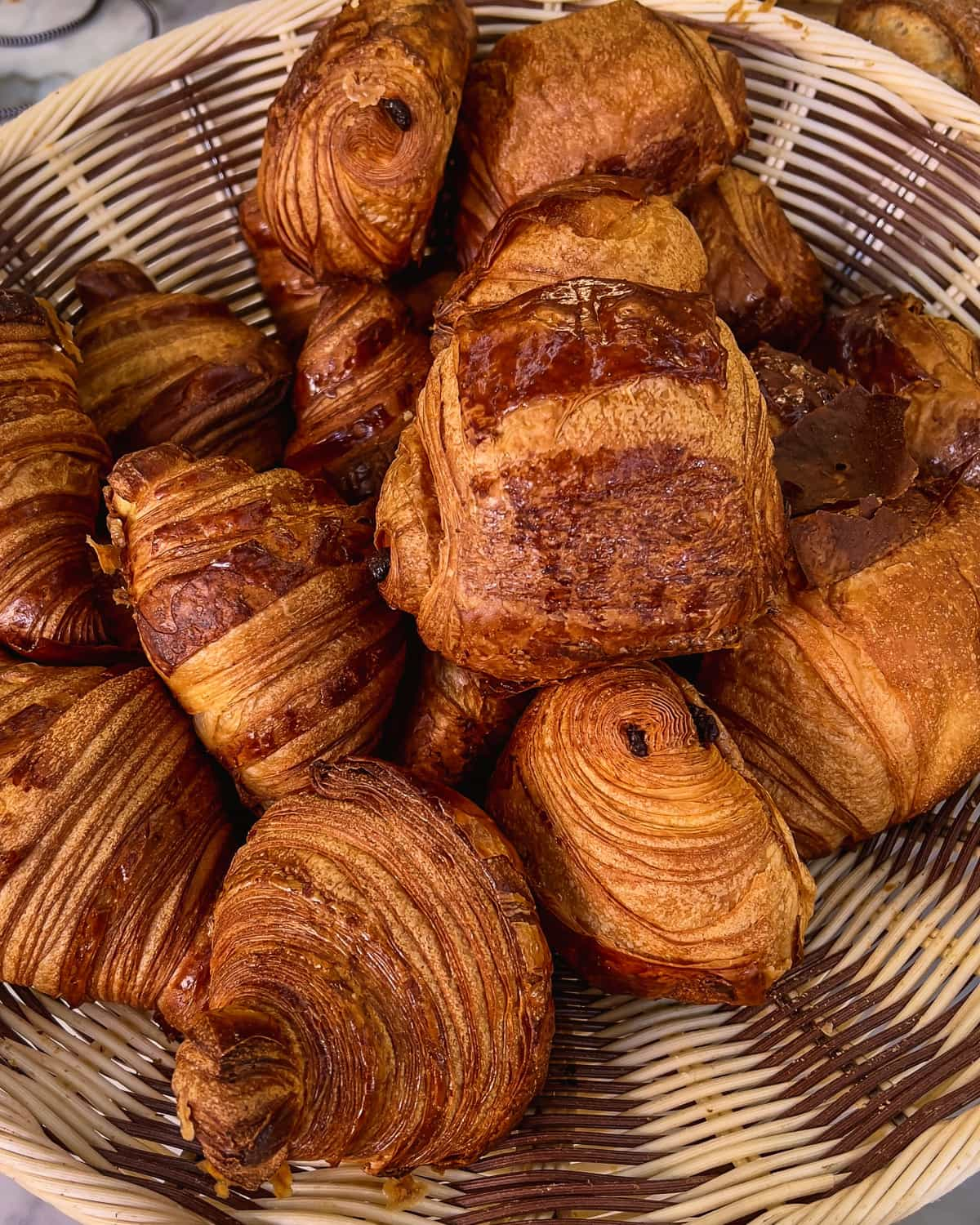
Snacking in France? It doesn’t exist
The French do not really snack, at least not in the way that I had grown up snacking. Let me explain what I mean.
Indian cuisine has delicious main meals but the variety of food we have for snacking is staggering. Snacks according to the time of day and the season (Maybe I will write a post in the future dedicated to Indian snacks?). While the French might claim goûter or apéro time, where they munch from communal plates, as snack times, in my opinion, it is not .
If you label a meal time, it’s not really snacking anymore, is it? Snacking is everything that happens between labelled meal-times.
In France, people eat their meals or smaller food portions at designated times: breakfast, lunch, goûter, apéro, and dinner.
The idea of throwing caution to the wind and stuffing one’s face without any rhyme or occasion at an unlabelled hour purely for the joy of eating is, to put in mildly, foreign to the French. Just try opening a bag a chip at 4 PM, and the probability is that my husband or whichever French person I am with would ask me, “Oh you are hungry ? You didn’t eat well at lunch?”. This happens every. single. time.
However, if at 5 PM, you ask your French friend out for coffee and goûter, there’ll be no questions asked. Only perhaps, if you choose to eat something savoury instead of sweet. Then be prepared for some confused quizzical looks. Read the next part of this post to find out why.
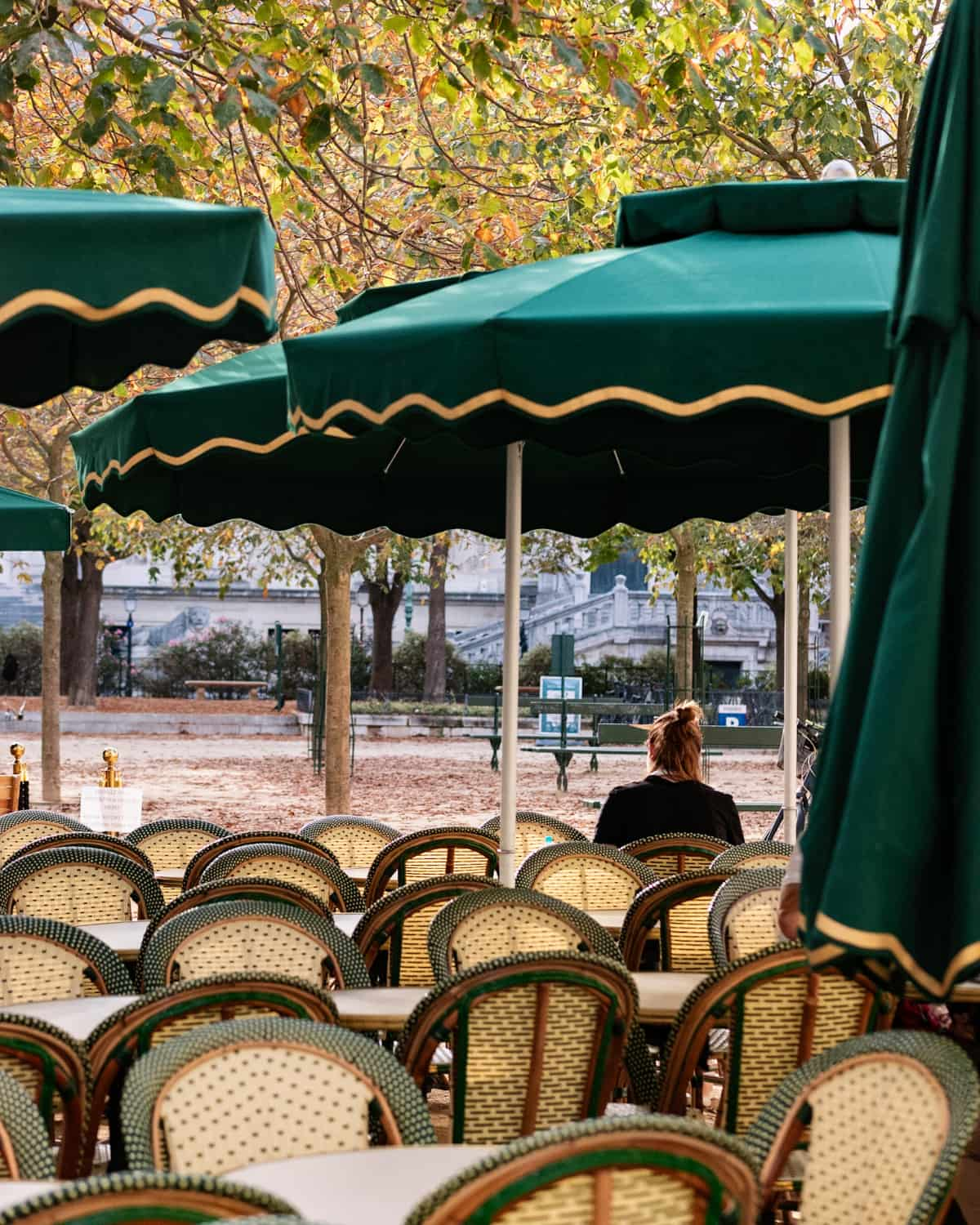
Goûter is not really tea-time
As I mentioned above, goûter can masquerade as snack time. However, its a definite indulgence, and you would be hard-pressed to find adults having in it regularly. And even if you do goûter, it comes with its own set of rules. First of all, it happens between 4 PM- 5 PM. And second of all, goûter does not imply you get a clean chit to eat whatever as a snack.
When I first arrived in France, I took goûter to be the equivalent of chai time or tea time in India. It involves drinking (usually milky boiled Indian) tea with a whole host of sweet and salty treats which could include anything from samosa to spicy noodles. So, I got very excited and got it in my head that I wanted to host a goûter . The Indian in me just wanted her chance to shine as a perfect tea host. If you are Indian, you know what I was going for: hot beverages, and tons of yummy salty-spicy food served up to be enjoyed over hot gossip.
My dreams were swiftly dashed when we set out for grocery shopping. I suggested we should try to make some version of a pakoda (veggies dipped in batter and fried). My husband’s face wore a look of horror. If you are French and reading this, you might be making the same face.
Forcing his voice not to quiver, my husband says, “No. It’s goûter . Goûter is sweet.” As I stared at his face wearing, what I am sure, was a stupefied expression, he realised he must elaborate. He repeated himself, “Goûter is sweet,” implying I should infer the rest. “Why ?”, I asked. His unhelpfully answered, “I don’t know why. It’s always sweet.” Such is the depth of food rituals. Sigh! Goûter is always sweet.
Why? Well, one explanation is that goûter something kids eat after school. But still doesn’t explain why it’s sweet. I happened to love salty food even as a kid. Perhaps that’s just me?
If you want something salty, just wait another hour or two for apéro around 6-7 PM, and you can have your fill of olives, chips and salsa at a socially-accepted hour.
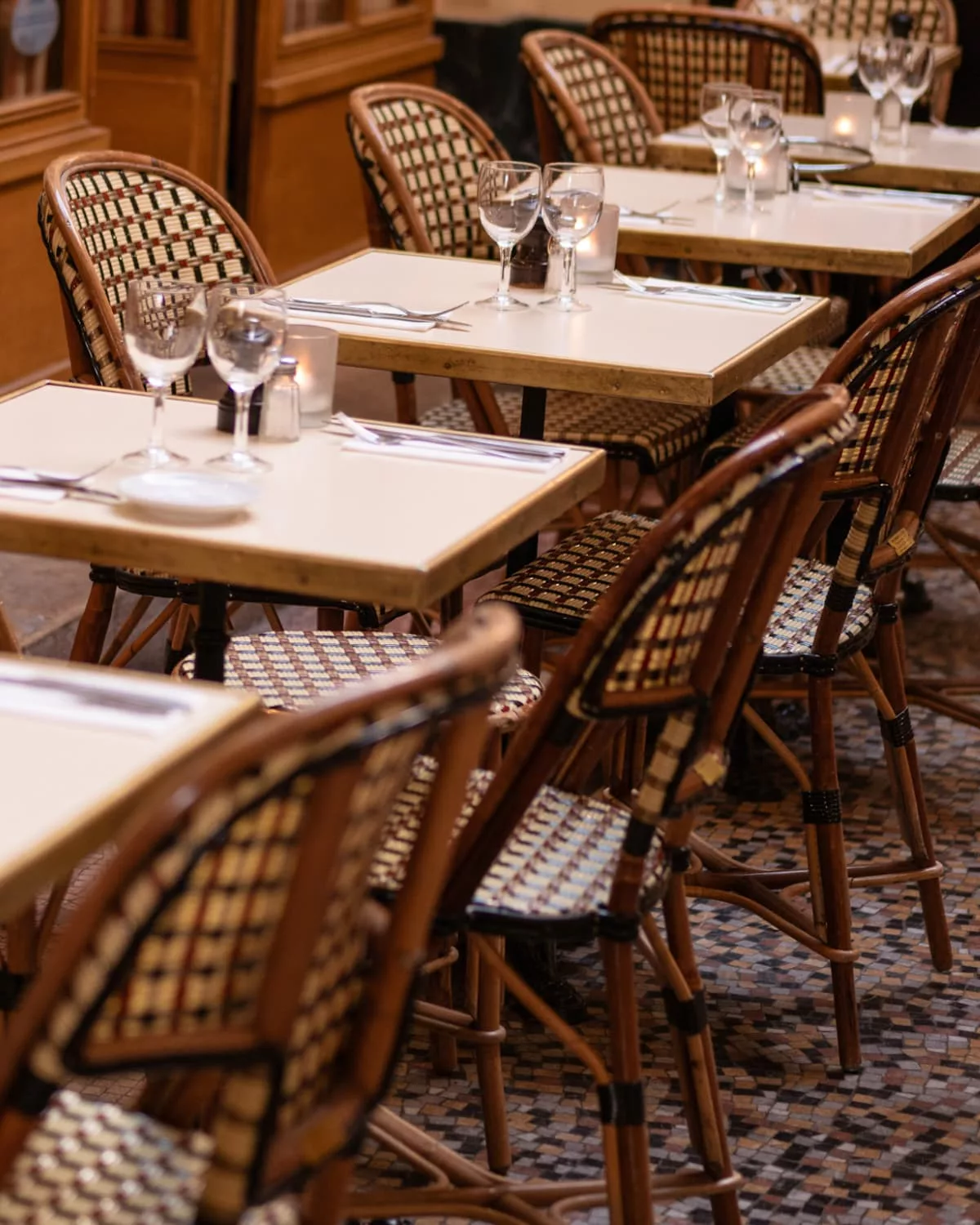
Nothing romantic about breakfast in bed
Eating in bed is probably the easiest way to get a rise out of my husband. This is saying a lot because he is honestly the most chipper and patient guy I know. But even suggesting eating anywhere near the bed can get his anxiety meter hitting the roof. He says it is the thought of crumbs in the bedsheet. I suspect it is more a cultural conditioning thing.
For my husband, there is no romantic association with the phrase ”breakfast in bed”. Just sheer horror akin to seeing the last vestiges of civilization collapse. Okay, I am clearly being a tad bit dramatic but I’m not too far from the truth. Eating in France, as I said, is a ritualised activity. Eating where you sleep, is a psychological barrier which he or all French people I know, are not prepared to cross. Even if you promise there will be no crumbs. Even if it’s just popcorn while watching a movie when you’re sick.
I have come to appreciate the spirit of conviviality and deep appreciation of food ingrained in French culture. And after 3 years of living in France, perhaps I too have started eating like the French. But I still do happily break many French food rules all the time. However, it is definitely better to know and understand the rules before you break them.

